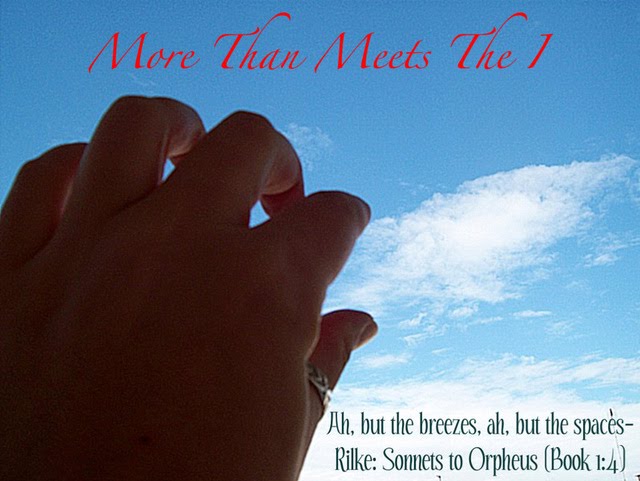I am celebrating World Poetry Day a bit late here in my blog, but actually every day is poetry day for me. I chose to share not a poem but a speech on poetry by our Nobel winning poet Georgios Seferis. It is one of those readings that shape your mind and you are never quite the same again...
***Giorgos Seferis' speech at the Nobel Banquet at the City Hall in Stockholm, December 10, 1963
I feel at this moment that I am a living contradiction. The Swedish Academy has decided that my efforts in a language famous through the centuries but not widespread in its present form are worthy of this high distinction. It is paying homage to my language - and in return I express my gratitude in a foreign language. I hope you will accept the excuses I am making to myself.
I belong to a small country. A rocky promontory in the Mediterranean, it has nothing to distinguish it but the efforts of its people, the sea, and the light of the sun. It is a small country, but its tradition is immense and has been handed down through the centuries without interruption. The Greek language has never ceased to be spoken. It has undergone the changes that all living things experience, but there has never been a gap. This tradition is characterized by love of the human; justice is its norm. In the tightly organized classical tragedies the man who exceeds his measure is punished by the Erinyes. And this norm of justice holds even in the realm of nature.
«Helios will not overstep his measure»; says Heraclitus, «otherwise the Erinyes, the ministers of Justice, will find him out». A modern scientist might profit by pondering this aphorism of the Ionian philosopher. I am moved by the realization that the sense of justice penetrated the Greek mind to such an extent that it became a law of the physical world. One of my masters exclaimed at the beginning of the last century, «We are lost because we have been unjust» He was an unlettered man, who did not learn to write until the age of thirty-five. But in the Greece of our day the oral tradition goes back as far as the written tradition, and so does poetry. I find it significant that Sweden wishes to honour not only this poetry, but poetry in general, even when it originates in a small people. For I think that poetry is necessary to this modern world in which we are afflicted by fear and disquiet. Poetry has its roots in human breath - and what would we be if our breath were diminished? Poetry is an act of confidence - and who knows whether our unease is not due to a lack of confidence? (my emphasis)
Last year, around this table, it was said that there is an enormous difference between the discoveries of modern science and those of literature, but little difference between modern and Greek dramas. Indeed, the behaviour of human beings does not seem to have changed. And I should add that today we need to listen to that human voice which we call poetry, that voice which is constantly in danger of being extinguished through lack of love, but is always reborn. Threatened, it has always found a refuge; denied, it has always instinctively taken root again in unexpected places. It recognizes no small nor large parts of the world; its place is in the hearts of men the world over. It has the charm of escaping from the vicious circle of custom. I owe gratitude to the Swedish Academy for being aware of these facts; for being aware that languages which are said to have restricted circulation should not become barriers which might stifle the beating of the human heart; and for being a true Areopagus, able «to judge with solemn truth life's ill-appointed lot», to quote Shelley, who, it is said, inspired Alfred Nobel, whose grandeur of heart redeems inevitable violence.
In our gradually shrinking world, everyone is in need of all the others. We must look for man wherever we can find him. When on his way to Thebes Oedipus encountered the Sphinx, his answer to its riddle was: «Man». That simple word destroyed the monster. We have many monsters to destroy. Let us think of the answer of Oedipus.(my emphasis).
Write Your Message on the Sand
August 2010
(c)More Than Meets The I





